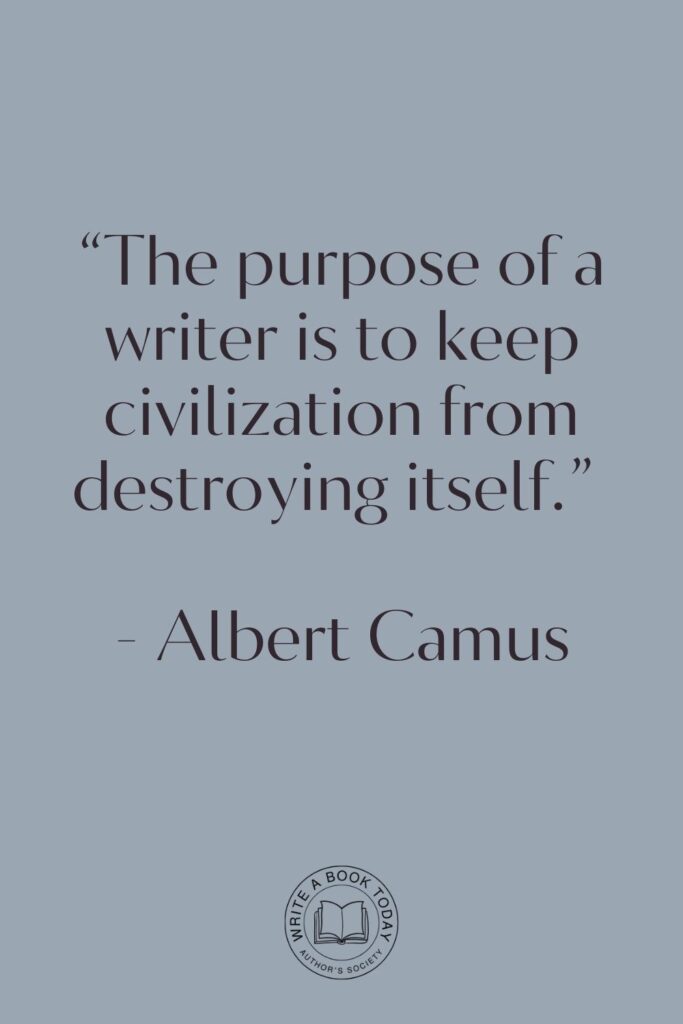Have you ever sat down with a steaming cup of coffee, a blank page in front of you, and a mind buzzing with ideas, only to find your writing goals slipping through your fingers like grains of sand? You’re not alone.
Many writers, whether they are seasoned authors or budding scribes, grapple with the art of setting and achieving writing goals. Imagine having a roadmap that not only guides you but also inspires you to reach those creative destinations.
In this blog post, we’ll explore how to set effective writing goals and stick to them, transforming your aspirations into tangible accomplishments.
Understanding Writing Goals
Before diving into the nitty-gritty of crafting goals, it’s essential to understand what writing goals truly are and why they matter. Much like a sailor needs a compass to navigate the seas, writers need goals to steer their creativity in the right direction.
What Are Writing Goals?
Writing goals are the targets you set for your writing journey. They can range from completing a novel within a year to writing a certain number of words each day.
These goals act as a beacon, guiding you through the often tumultuous waters of creativity. Unlike vague aspirations, well-defined goals give structure to your writing process, making it easier to measure progress and success.
Think of writing goals as a ladder. Each rung represents a step closer to your ultimate dream, whether it’s publishing a book, starting a blog, or simply improving your writing skills. By breaking down larger ambitions into smaller, manageable steps, you create a clear path forward.
The Importance of Setting Writing Goals
Setting writing goals is akin to planting seeds in a garden. With time, care, and attention, these seeds grow into flourishing plants. Similarly, writing goals foster discipline, motivation, and a sense of achievement. They help you focus your energy on specific tasks, preventing the overwhelm that often accompanies creative pursuits.
A helpful tip is to visualize your end goal vividly. Picture yourself holding that published book or receiving positive feedback on your blog. This visualization can fuel your determination and keep you on track when challenges arise.
Crafting Your Writing Goals
Creating effective writing goals is both an art and a science. It involves understanding your personal motivations and applying proven frameworks that enhance your chances of success.
Let’s delve into some strategies that can help you craft goals that resonate with your unique writing journey.

SMART Goals: A Framework for Success
The SMART framework is a tried-and-true method for setting writing goals that work. SMART stands for Specific, Measurable, Achievable, Relevant, and Time-bound.
By applying these criteria to your goals, you create a clear, actionable plan that enhances your likelihood of success.
- Specific: Clearly define what you want to achieve. Instead of saying “I want to write more,” specify “I want to write 500 words daily.”
- Measurable: Establish criteria to track your progress. This could be word count, pages, or chapters completed.
- Achievable: Set realistic goals that stretch your abilities but are within reach. Writing a novel in a week might not be feasible, but a chapter could be.
- Relevant: Ensure your goals align with your broader writing aspirations. If your dream is to publish a novel, focus on goals that contribute to that outcome.
- Time-bound: Set a deadline to instill urgency and prevent procrastination. For example, aim to complete your first draft by a specific date.
Consider using a digital planner or app to track your SMART goals. These tools can provide reminders, track progress, and offer insights into your writing habits, helping you stay on course.
Personalizing Your Writing Goals
While frameworks like SMART are invaluable, personalizing your goals ensures they resonate with your individual writing journey. Every writer is unique, with different inspirations, challenges, and schedules. Tailoring your goals to fit your lifestyle and preferences increases your commitment to achieving them.
Start by reflecting on your writing habits and preferences. Are you a morning person who thrives on early writing sessions, or do you find inspiration in the quiet of night? Understanding your natural rhythms allows you to craft goals that complement rather than clash with your routine.
Incorporate rewards into your goal-setting process. Promise yourself a treat—like a favorite snack or a break to enjoy a good book—after reaching a milestone. This adds an element of fun and motivation to your writing journey.
No marketing platform? No social following? No problem!
Publisher Rocket helps you market your debut novel like a pro.
It’s a gamechanger for debut authors – try it today!


Overcoming Writing Challenges
Every writer, no matter how skilled or dedicated, encounters obstacles along their creative path. Recognizing these challenges and developing strategies to overcome them is crucial to maintaining momentum and achieving your writing goals.
Common Obstacles Writers Face
Writers often face a myriad of challenges that can derail their progress. From writer’s block to self-doubt, these hurdles can seem insurmountable at times. Understanding these common obstacles is the first step toward overcoming them.
Writer’s block is perhaps the most notorious challenge, striking when inspiration seems to vanish into thin air. Other common issues include time constraints, distractions, and the fear of failure. Each of these can sap your motivation and hinder your ability to stick to your goals.

Strategies to Overcome Writing Challenges
Fortunately, numerous strategies exist to help writers navigate these challenges. One effective approach is to establish a dedicated writing space free from distractions. This environment signals to your brain that it’s time to focus on your craft.
Another powerful technique is to set smaller, more manageable goals during periods of low motivation. Breaking tasks into bite-sized pieces reduces overwhelm and builds momentum.
Additionally, embracing the concept of “imperfect progress” allows you to move forward without the pressure of perfection.
| Challenge | Strategy |
|---|---|
| Writer’s Block | Freewriting exercises to stimulate creativity |
| Time Constraints | Time-blocking techniques to allocate specific writing periods |
| Fear of Failure | Positive affirmations and reframing setbacks as learning experiences |
Sticking to Your Writing Goals
Setting goals is one thing, but sticking to them requires dedication and a strategic approach. By cultivating habits that support your writing endeavors, you increase your chances of turning goals into achievements.
Feeling lost with your debut novel?
Fiverr Pro connects you with expert editors, designers, and marketers – everything you need to get your book ready for success!

Creating a Writing Routine
A consistent writing routine is the backbone of goal achievement. Just as athletes train regularly to hone their skills, writers benefit from establishing a routine that nurtures creativity and discipline.
Begin by identifying the time of day when you’re most productive. Whether it’s early morning or late at night, aligning your writing sessions with your peak energy levels maximizes efficiency.
Consider setting a specific time each day to write, even if it’s just for a short period.
Tracking Your Progress
Tracking your progress is essential for maintaining motivation and celebrating achievements. By recording your accomplishments, you gain valuable insights into your writing habits and patterns.
Consider keeping a journal or using digital tools to log your daily word count, completed chapters, or any other relevant metrics. This tangible evidence of progress serves as a reminder of your dedication and growth.
Periodically review your progress and adjust your goals as needed. Life’s circumstances change, and your writing journey may require flexibility. Embrace the fluidity of goal-setting to ensure continued success.
Motivational Writing Tips for Every Writer
Motivation is the fuel that propels writers forward, even when the road gets tough. Discovering sources of inspiration and building a supportive community can reignite your passion for writing.

Finding Your Inspiration
Inspiration can be elusive, but it’s the spark that ignites creativity. Seek out activities, people, or places that inspire you. Whether it’s a walk in nature, a conversation with a fellow writer, or a visit to a favorite café, inspiration often strikes when you least expect it.
Experiment with different writing prompts or exercises to stimulate your imagination. Sometimes, stepping outside your comfort zone and exploring new genres or styles can breathe fresh life into your writing.
Building a Supportive Writing Community
Writing can be a solitary endeavor, but it doesn’t have to be. Surrounding yourself with a supportive community of fellow writers can provide encouragement, feedback, and camaraderie.
Join writing groups, online forums, or local workshops to connect with others who share your passion. Engaging with a community fosters accountability and offers a safe space to share your challenges and triumphs.
Google Docs is for notes. Scrivener is for novels. Upgrade your writing game and try it for free today!

Celebrating Your Achievements
As you progress on your writing journey, taking the time to celebrate your achievements is crucial. Recognizing your successes, no matter how small, reinforces your commitment and fuels your motivation to keep going.
Recognizing Small Wins
Every step forward is a victory, and acknowledging these small wins boosts your confidence and morale. Whether it’s completing a challenging chapter or reaching a daily word count goal, take a moment to savor your accomplishments.
Consider creating a visual representation of your progress, such as a chart or graph, to see how far you’ve come. This tangible evidence of your hard work serves as a powerful reminder of your capabilities.
Setting New Goals for Continued Growth
Once you’ve achieved your initial goals, it’s time to set new ones that challenge and inspire you further. Continuously striving for growth keeps your writing journey dynamic and fulfilling.
Reflect on what you’ve learned from previous goals and use those insights to shape your future aspirations. Remember that writing is a lifelong journey, and each goal achieved is a stepping stone toward your ultimate dreams.








